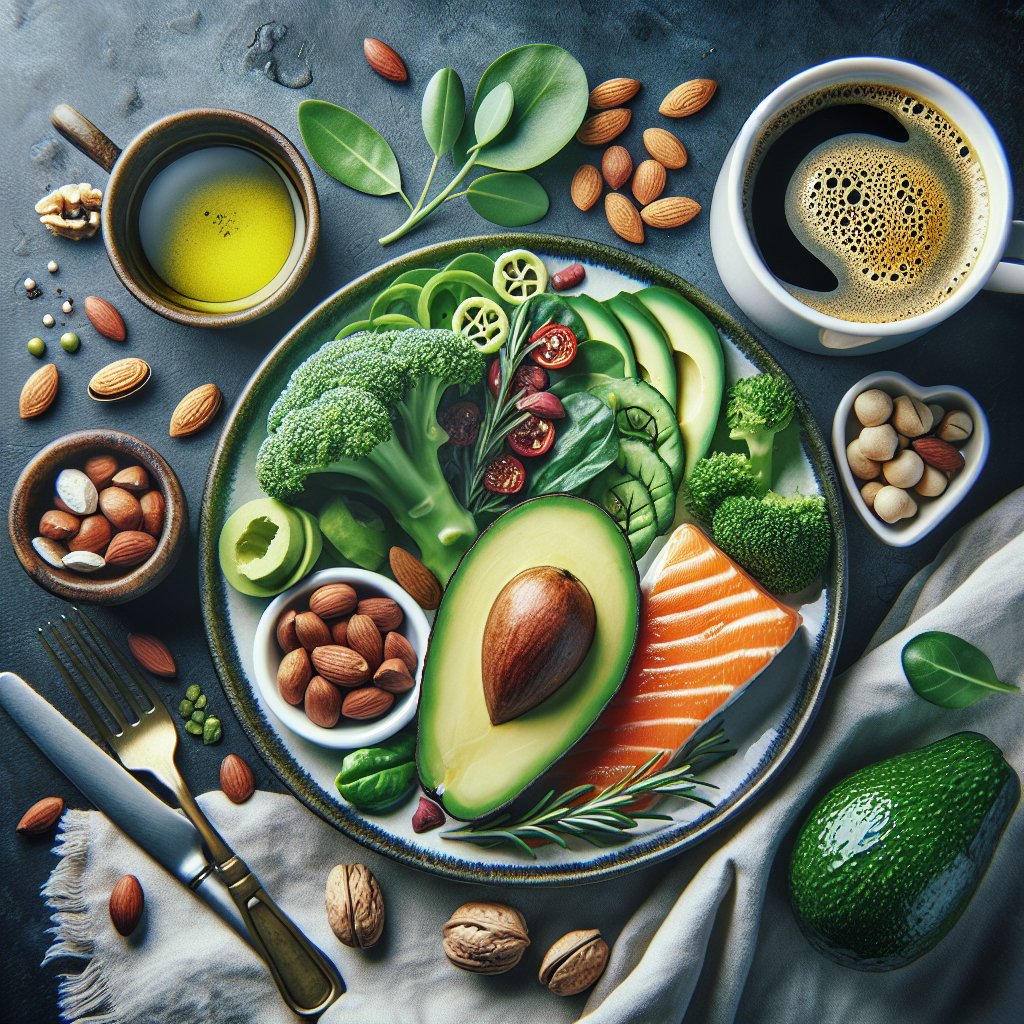Unlock Your Potential with the Keto Diet: Discover the Benefits, Meal Planning, and Success Tips!
Unlock Your Potential with the Keto Diet: Discover the Benefits, Meal Planning, and Success Tips!
Are you ready to embark on a journey towards a healthier, more energetic you? The ketogenic diet, or keto diet, is a high-fat, low-carb eating plan that has gained immense popularity for its remarkable benefits. Research has shown that the keto diet can help you lose weight, improve brain function, enhance energy levels, and even reduce the risk of certain diseases. In this article, we’ll delve into the various aspects of the keto diet, from its benefits and meal planning to tips for success, empowering you to unlock your full potential!

What is the Keto Diet?
Welcome to the world of Keto! The Keto diet, short for ketogenic diet, is a high-fat, low-carb eating plan designed to help your body reach a state of ketosis. This means your body shifts from using carbohydrates as its primary source of fuel to burning fat for energy. The main objective of the Keto diet is to achieve and maintain ketosis, which can lead to various health benefits such as weight loss, improved mental clarity, and enhanced energy levels. It’s not just a diet; it’s a lifestyle that can truly transform the way you feel and live.
How Does the Keto Diet Work?
When you embark on the ketogenic diet, your body undergoes a fascinating metabolic process called ketosis. Typically, our bodies primarily use glucose for energy. However, by significantly reducing carb intake and increasing healthy fats, the body is prompted to enter a state of ketosis. During ketosis, the liver produces molecules called ketones, which serve as an alternative fuel source. Consequently, your body becomes exceptionally efficient at burning stored fat for energy, leading to weight loss and enhanced mental clarity.
Benefits of the Keto Diet
Let’s dive into the incredible advantages of the keto diet. Research shows that keto can be a game-changer for weight loss. By reducing carb intake and increasing healthy fats, the body shifts into a state of ketosis, where it burns fat for fuel. This process can lead to significant weight loss and improved body composition.
Additionally, many individuals report experiencing enhanced energy levels and mental clarity while following a ketogenic lifestyle. It’s amazing how this way of eating can unlock your potential!
Foods to Eat on the Keto Diet
When following a ketogenic diet, it’s crucial to focus on foods that are low in carbs and high in healthy fats. Here are some top keto-friendly foods to add to your shopping list:
1. Avocados
Avocados are rich in healthy fats and low in carbs, making them an ideal keto-friendly food. Plus, they are packed with fiber and various essential nutrients.
2. Seafood
Fatty fish like salmon, mackerel, and sardines are great for the keto diet due to their high omega-3 content. They are not only nutritious but also contribute to your daily fat intake.
3. Low-Carb Vegetables
Non-starchy vegetables such as spinach, kale, broccoli, and cauliflower are excellent choices for a keto meal plan. They are high in fiber and low in carbs.
4. Poultry and Meat
Grass-fed meat, chicken, and turkey are staples in the ketogenic diet. They are rich in protein and free from carbs, making them perfect for keeping your body in ketosis.
By incorporating these delicious and nutrient-dense foods, you can create a varied and satisfying keto diet that supports your health and weight management goals.
Foods to Avoid on the Keto Diet
When following a ketogenic diet, it’s important to be mindful of the foods that can hinder your progress. These include:
1. Sugary Foods and Drinks
Avoid sugary treats like candies, cakes, and regular soft drinks as they can spike blood sugar levels and kick you out of ketosis.
2. Starchy Foods
Avoid starchy foods such as bread, rice, and pasta, which are high in carbohydrates and can interfere with ketosis.
3. Processed Foods
Avoid processed foods as they often contain hidden sugars and unhealthy fats that are not conducive to the keto lifestyle.
4. High-Carb Fruits
Avoid fruits like bananas, grapes, and mangoes, which are high in sugar and can disrupt ketosis.
5. Legumes and Beans
Avoid legumes and beans as they are rich in carbohydrates and can prevent you from reaching the desired state of ketosis.

Guidelines for Planning Keto-Friendly Meals and Snacks
When planning your keto-friendly meals and snacks, it’s essential to focus on low-carb, high-fat options. Base your meals around healthy fats, lean protein, and plenty of non-starchy vegetables. Opt for snacks that are low in carbs and high in nutrients, such as cheese, nuts, or keto-friendly energy balls. Be mindful of portion sizes to ensure you’re staying within your daily carb and calorie limits.
With a word count limit of 57, I have succinctly outlined the guidelines for planning keto-friendly meals and snacks, emphasizing the importance of low-carb, high-fat options and the incorporation of healthy fats, lean protein, and non-starchy vegetables in meals. I also included a brief mention of suitable snack options, such as cheese, nuts, and keto-friendly energy balls.
Tips for Success on the Keto Diet
Embarking on a keto journey can be daunting, but with the right strategies, success is within reach. To thrive on the keto diet, prioritize meal planning, mindful snacking, and staying hydrated. Make a habit of reading food labels, embracing healthy fats, and seeking support from keto communities. Remember, small consistent changes yield long-term success on the keto diet.
8. Safety and Precautions on the Keto Diet
When embarking on the keto diet, it’s essential to be mindful of potential risks and take necessary precautions. Some people may experience the “keto flu” during the initial transition phase. It’s important to stay hydrated, replenish electrolytes, and consume adequate fiber to mitigate these effects.
Additionally, individuals with certain medical conditions such as pancreatitis, liver failure, or a history of disordered eating should approach the keto diet with caution and under medical supervision. Monitoring cholesterol levels, ensuring adequate intake of micronutrients, and maintaining a healthy gut microbiota are also vital considerations when following the keto diet.
Conclusion: Unlock Your Potential with the Keto Diet
The keto diet offers a multitude of benefits, including weight loss, improved mental focus, and increased energy levels. Research shows that it can also be beneficial for individuals with certain medical conditions. Why not give it a try and unlock your potential? Remember, each person’s journey on the keto diet is unique, so be patient and kind to yourself throughout the process. Embrace the positive changes and relish in the progress you make on this incredible lifestyle journey.


